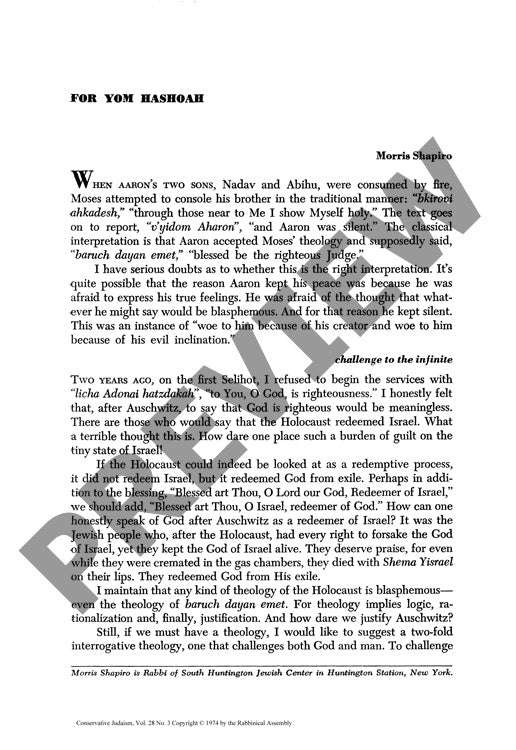For Yom Hashoah
Couldn't load pickup availability
After Auschwitz, conventional religious responses to tragedy become not just insufficient but potentially blasphemous. When survivors utter "baruch dayan emet" - blessed be the righteous Judge - what meaning can such words hold in the shadow of systematic genocide? Through hermeneutical analysis of biblical, rabbinic, and Hasidic texts, an "interrogative theology" emerges that legitimizes challenging God while preserving faith. This theological framework operates on two levels: enabling survivors to direct infinite frustration toward the divine, following the tradition of Abraham, Moses, and Job; and compelling humanity to prevent future atrocities. Drawing extensively on Hasidic sources, the analysis reveals that while only genuine lovers of God may question divine justice, such questioning becomes not only permissible but necessary after the Holocaust. Holocaust survivors occupy a unique spiritual position where traditional prayer proves difficult, yet the sanctification of God's name through Kaddish remains both possible and essential. By rejecting redemptive interpretations while carving space for faith through questioning, this work advances post-Holocaust Jewish theology beyond simple acceptance toward a more complex engagement with divine justice and human responsibility.

More Information
-
Physical Description
-
Publication Information
Published 1974
ISBN
-
Publication Credits
Morris Shapiro

